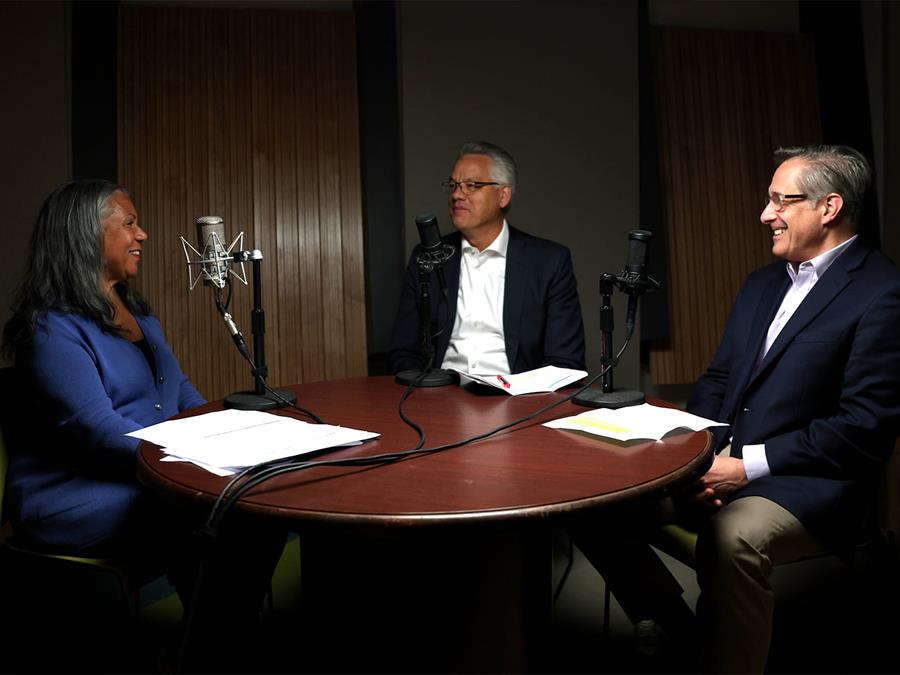Introducing the Drexel 2030 Podcast
Angela Dowd-Burton, one of three contributing authors of A Legacy to Share: Navigating Life’s Challenges and Celebrating Our Greatest Achievements, presented by the Drexel University Black Alumni Council, shares her story on the Drexel 2030 podcast series.
Executive Vice President and Nina Henderson Provost Paul Jensen shares the progress and development of Drexel’s Areas of Excellence and Opportunity (AEOs) on the latest episode of the Drexel 2030 podcast series.
Listen to the Areas of Excellence full episode.



